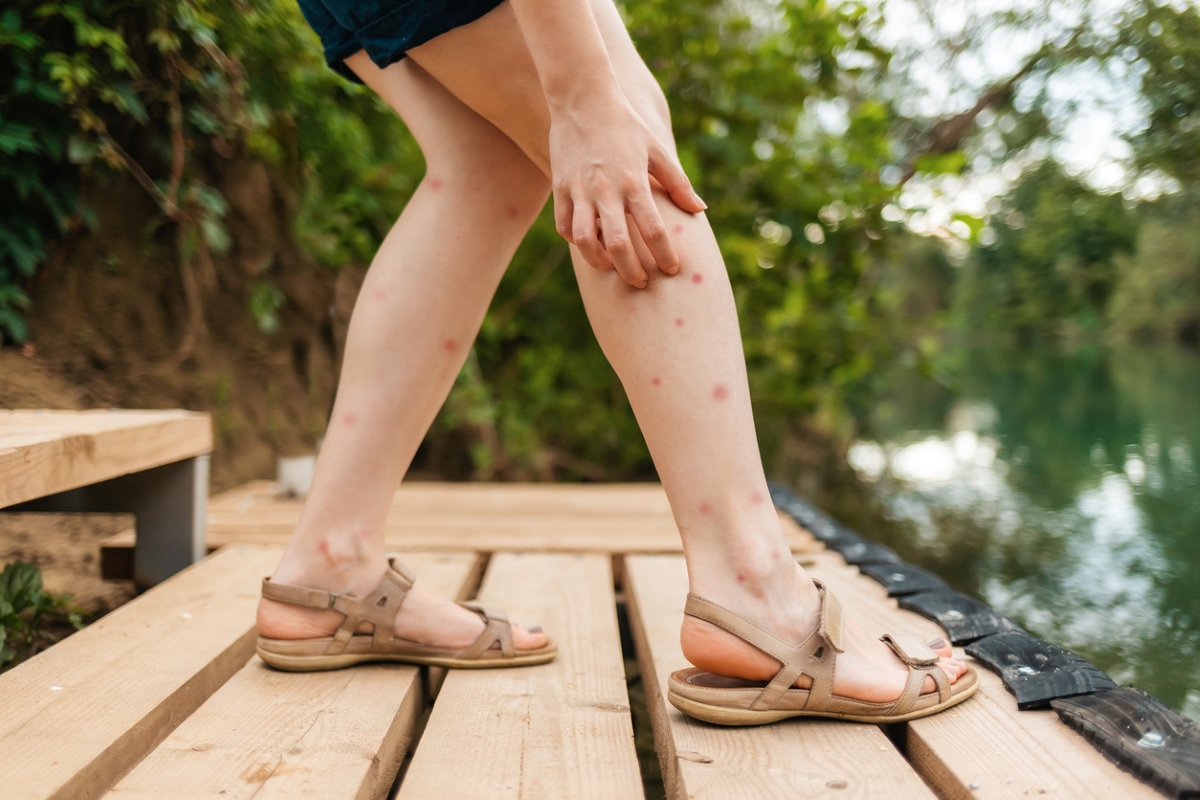

We may earn revenue from the products available on this page and participate in affiliate programs. Learn More ›
There are more than 200 types of mosquitoes living in the United States ready to ruin summer concerts, pool time, barbecues, and campouts. Mosquitoes aren’t just annoying and itchy—some types can carry harmful diseases like West Nile virus, the Zika virus, and malaria. While a nuisance throughout the United States, mosquitoes thrive in regions that are especially hot and humid.
For some homeowners, keeping mosquitoes away is an ongoing battle. While there are many reasons why these insects might be attracted to your property—leaving pets’ water bowls out, keeping the kiddie pool outside filled with water, having clogged gutters, or neglecting a birdbath—there are plenty of ways to deter them. To avoid using harmful chemical sprays or setting traps, learn how to get rid of mosquitoes in the backyard naturally with one or more of the following tricks.
1. Remove standing water.
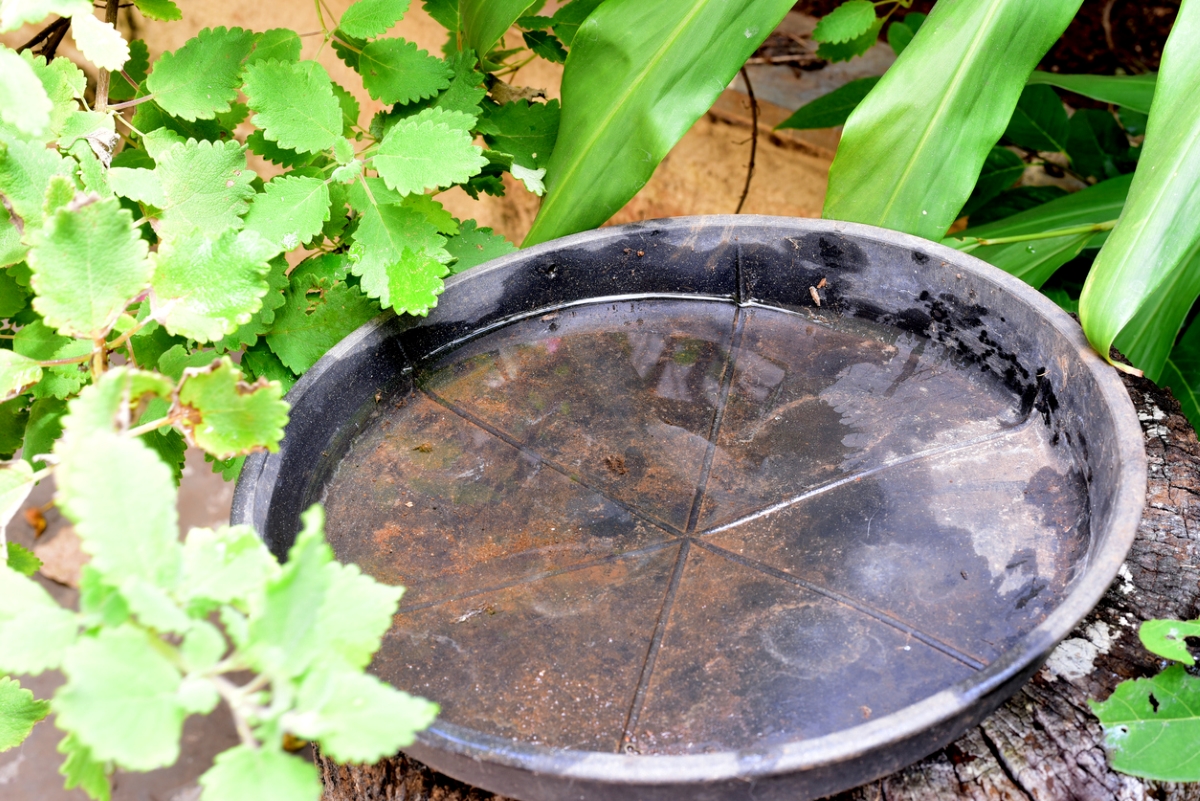
Standing water is where mosquitoes make more mosquitoes. Limit the insects’ ability to breed by clearing your gutters of clogs, filling in sunken parts of your lawn, removing tarps or debris where water might collect, and regularly changing the water in your bird bath or kiddie pool.
2. Make a garlic tonic.

Yes, really: Garlic makes an effective natural mosquito repellent. Mix one part garlic juice with five parts water, put the solution in a spray bottle, and spritz yourself as needed. As a side benefit, you will also repel vampires!
RELATED: The 8 Best Mosquito Repellent Options for Your Patio
3. Spray on some catnip oil.

Believe it or not, the essential oil in catnip, nepetalactone, repels mosquitoes more effectively than DEET. You may have neighborhood felines following you around, but catnip oil-based insect repellent does a good job of protecting exposed skin.
4. Build a bat house.
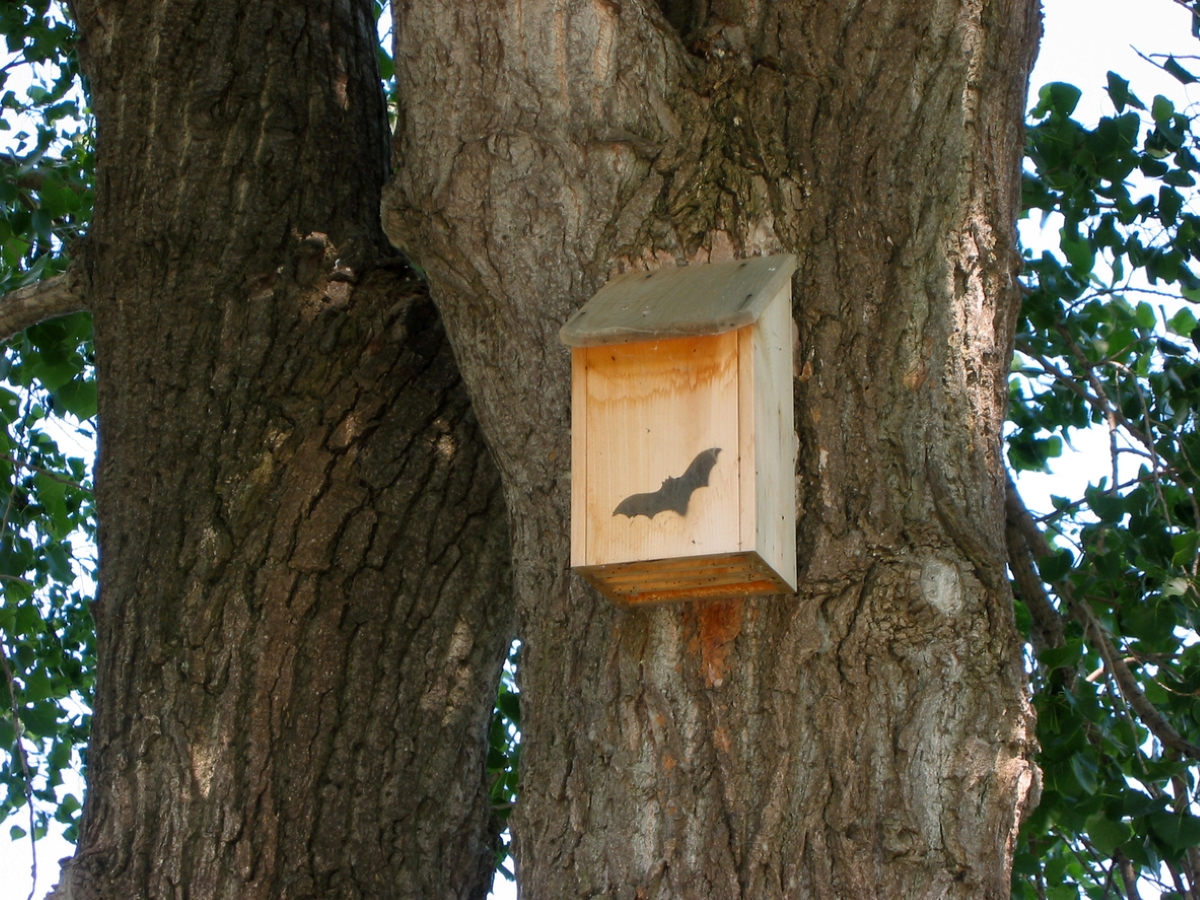
In just one hour, a bat can eat hundreds of insects, mosquitoes included. Build or buy a bat house, hang it in a well-ventilated area, and let those web-winged creatures do their thing.
RELATED: Mosquitoes Are the Worst in These Parts of the Country
5. Throw herbs on the grill.
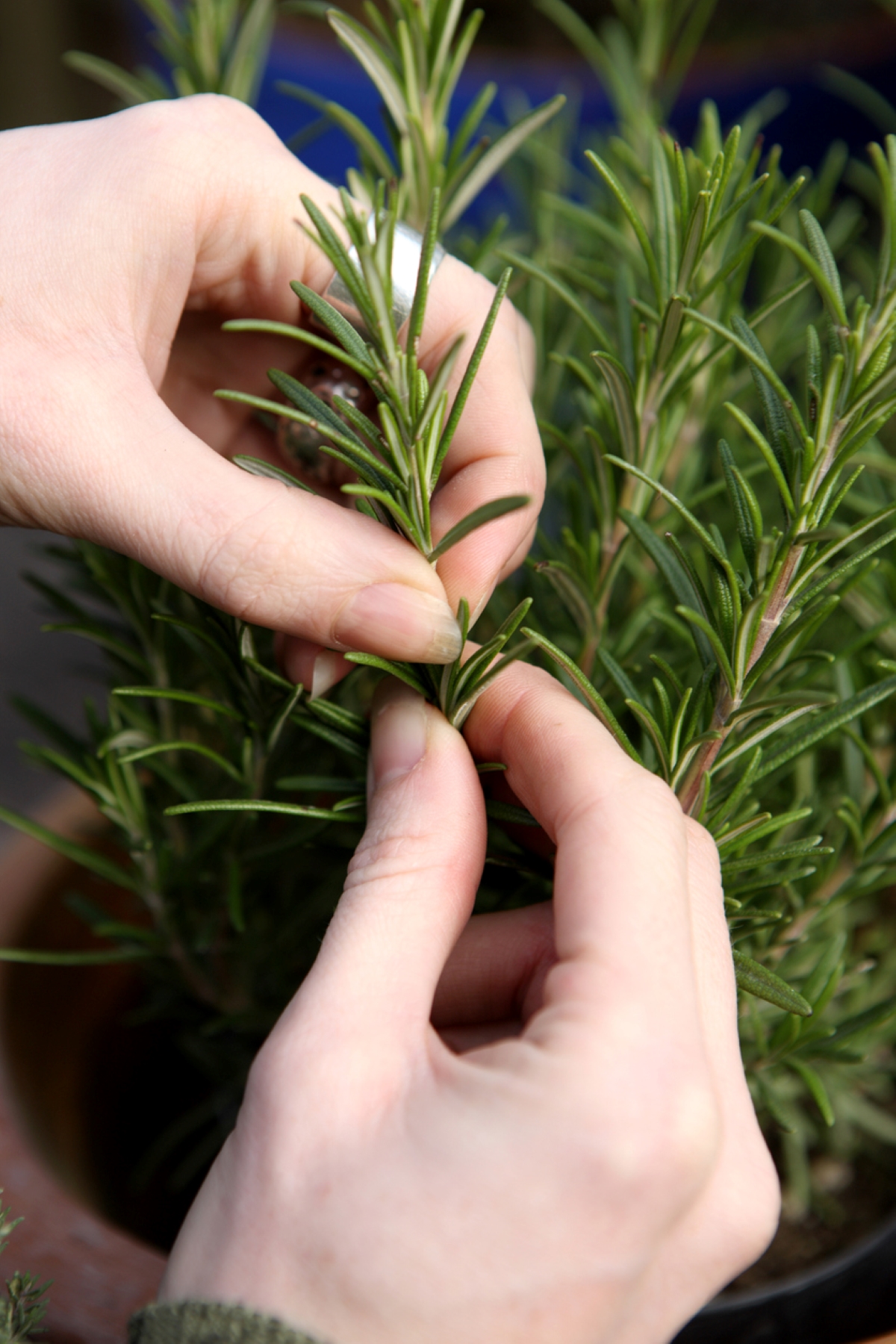
Because the essential oils in many herbs are natural insecticides, consider throwing a bundle of rosemary or sage on the coals while you’re barbecuing. The herbal aroma will smell nice, and mosquitos will steer clear of your burgers and dogs.
6. Spritz a natural bug spray.
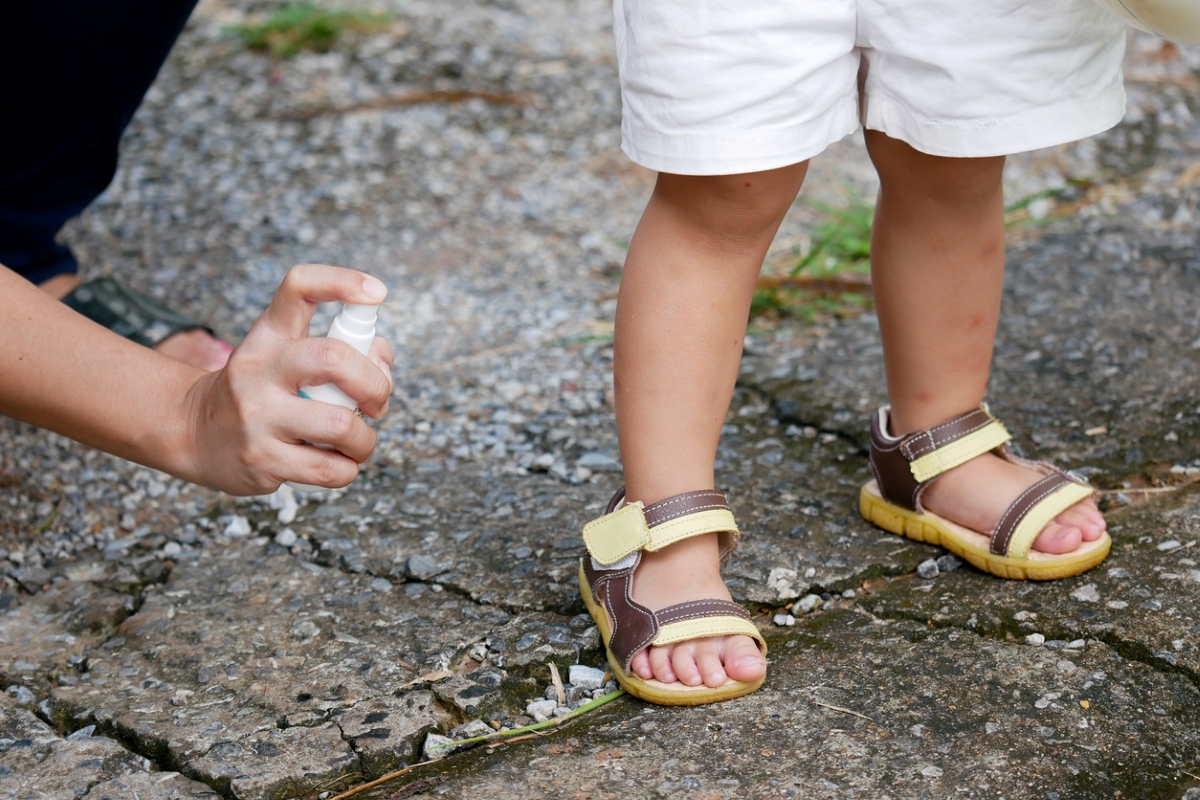
Some of the best mosquito control options are available commercially, and many effective options contain only natural ingredients. Goods one to look for include Repel Plant-Based Lemon Eucalyptus Insect Repellent, Murphy’s Naturals Lemon Eucalyptus Oil Natural Repellent, and Badger Plant-Powered Mosquito Repellent, all of which are DEET-free and use essential oils to guard against mosquitoes.
RELATED: The Best Mosquito Yard Sprays and Foggers
7. Turn on a fan.

Mosquitoes are tiny, and a fan blowing at a speed of 2 miles per hour will blow them away. Try strategically placing fans around your deck or patio to get a good bug-free breeze going.
8. Plant some lemongrass.
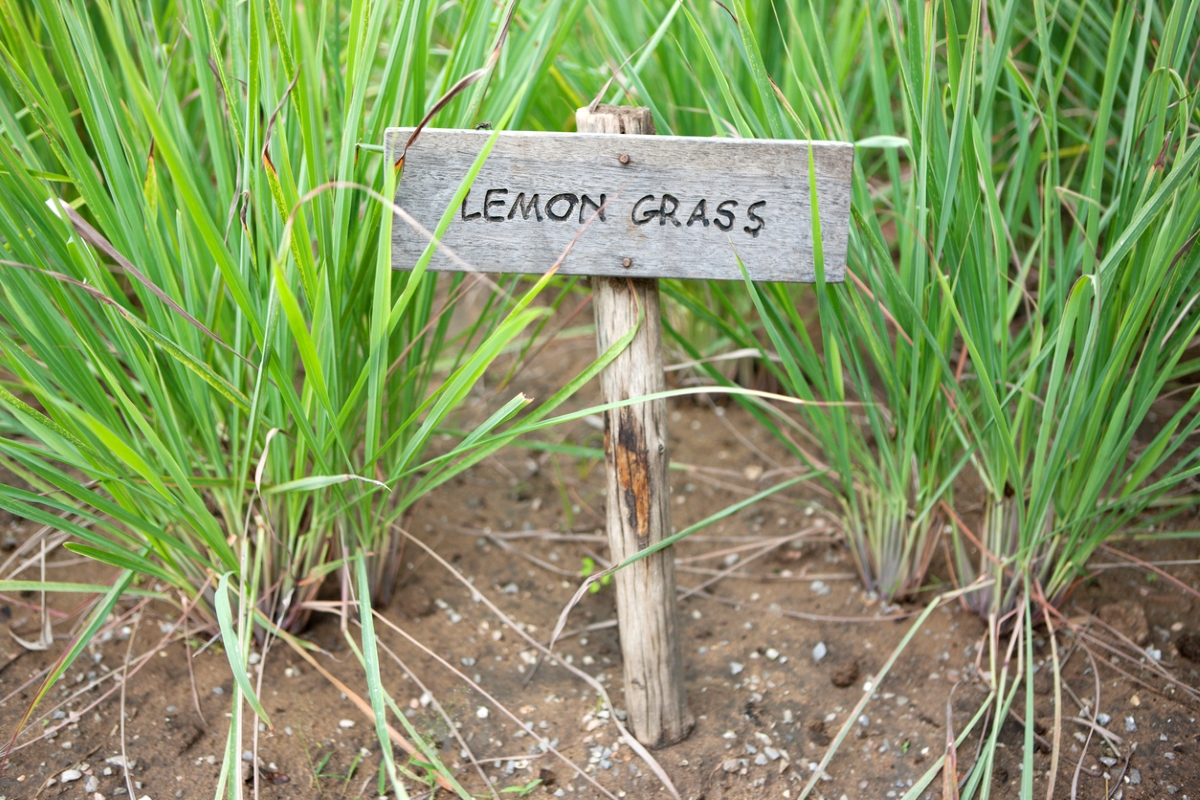
Thai lemongrass contains citronella oil, the strong scent of which makes it hard for mosquitoes to find you. At the same time, lemongrass is a beautiful mounding perennial. Plant some on your property wherever your family and friends like to congregate.
RELATED: 8 Ways You’re Making Your Mosquito Problem Worse
9. Change the light bulbs.

Mosquitoes aren’t attracted to all kinds of light—just some. Instead of standard bulbs, opt for LEDs, yellow bug lights, or sodium lamps. This light switch should reduce the number of mosquitoes swarming around the entrances to your house during evening hours.
10. Wear the right clothes.
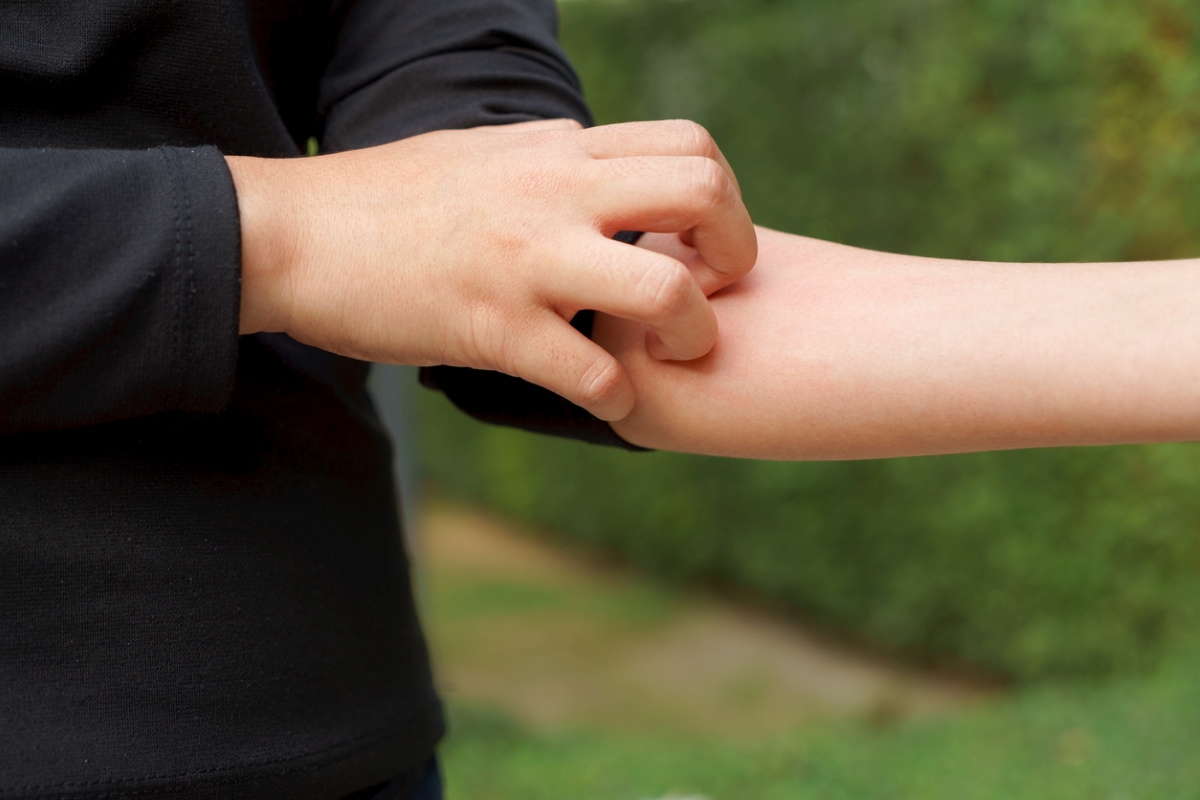
Certain species of mosquitoes are attracted to dark colors like black, blue, and red—and they are all attracted to heat. So stay cool (and less appealing) by wearing lighter colors. While you’re at it, try to avoid wearing scented perfumes or lotions.
RELATED: 3 Cheap and Easy Ways to Make a DIY Mosquito Trap
11. Spread cedar mulch in your garden beds.
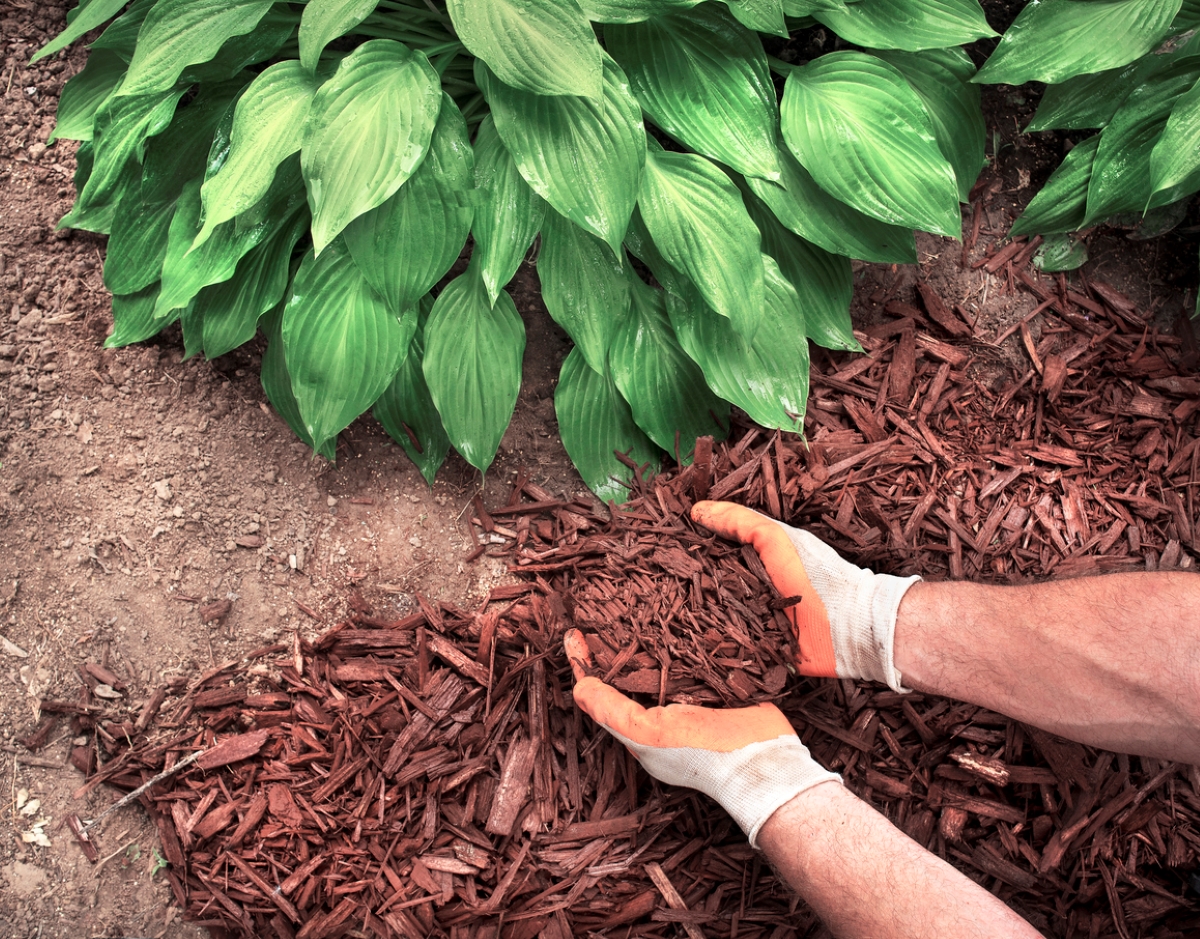
A common ingredient used in natural mosquito repellents for the yard, cedar oil will help deter mosquitoes from spending time near vegetation. Besides its unappealing odor to the insects, cedar mulch soaks up moisture to help keep them away. Cedar mulch is readily available at gardening stores. Spread it around the yard, particularly near flower beds.
12. Stay on top of yard work.
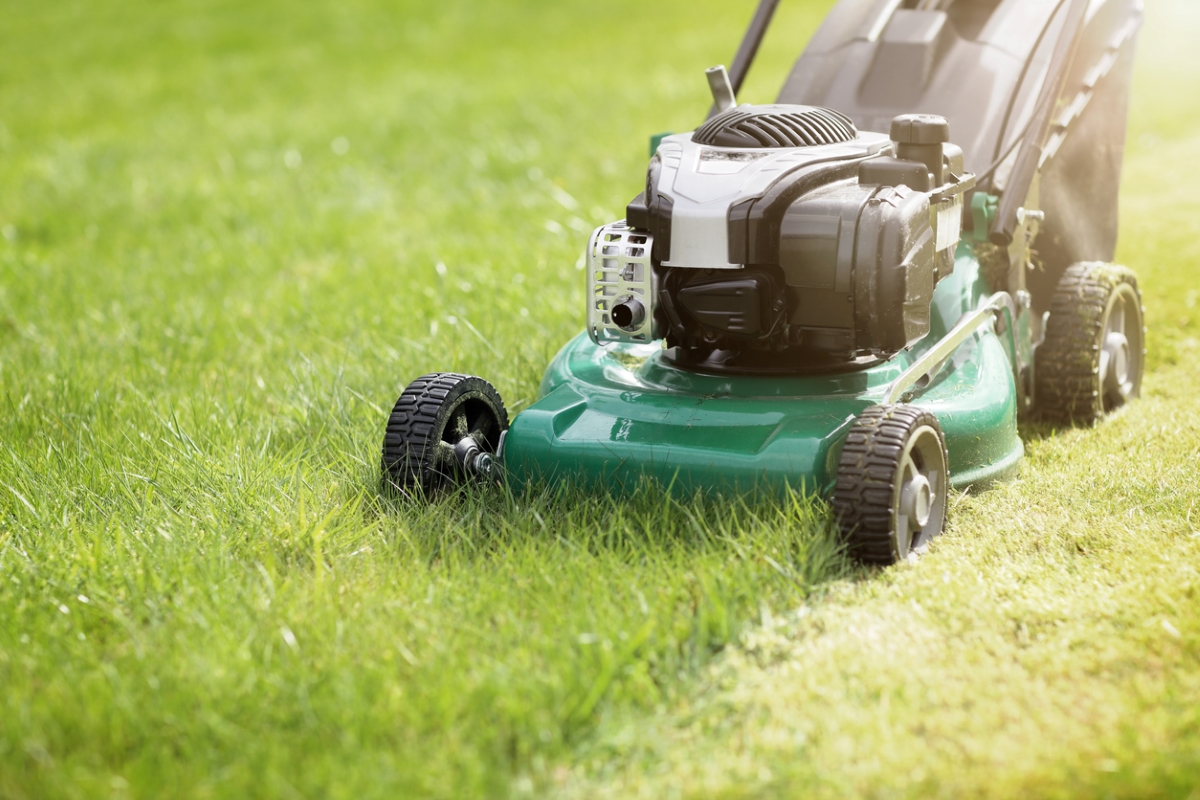
For a straightforward way of how to get rid of mosquitoes in the yard naturally, just keep up with yard work. Since mosquitoes prefer to settle in areas that are cool, damp, and dark, the National Pesticide Information Center recommends keeping grass and shrubs trimmed short to reduce places for mosquitoes to rest. Be sure to clip tall grass, remove weeds, mow the lawn as needed, rake, clear debris, and unclog gutters.
RELATED: The 6 Best Pest Control Companies
13. Add coffee grounds to standing water.
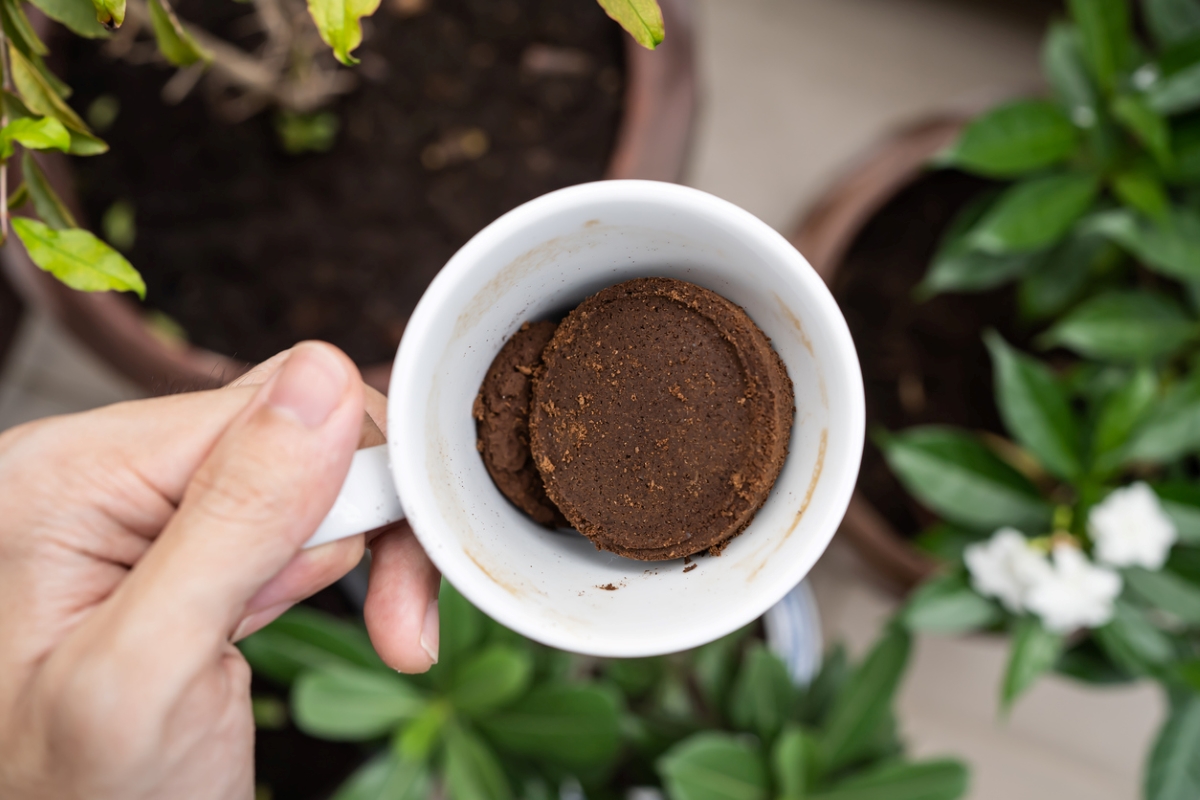
Mosquitoes despise the aroma of coffee grounds, which is why the remains of your cuppa is a potent mosquito treatment. The grounds can be fresh or used, and are even more effective when burned: Either add coffee grounds to compost or pour them into any standing water. Not only will the coffee repel adult mosquitoes, but mosquito eggs will rise to the surface and die due to a lack of oxygen. Plus, a 2015 study found that adult mosquitoes avoid laying eggs in coffee-treated water.
14. Attract natural predators to your property.
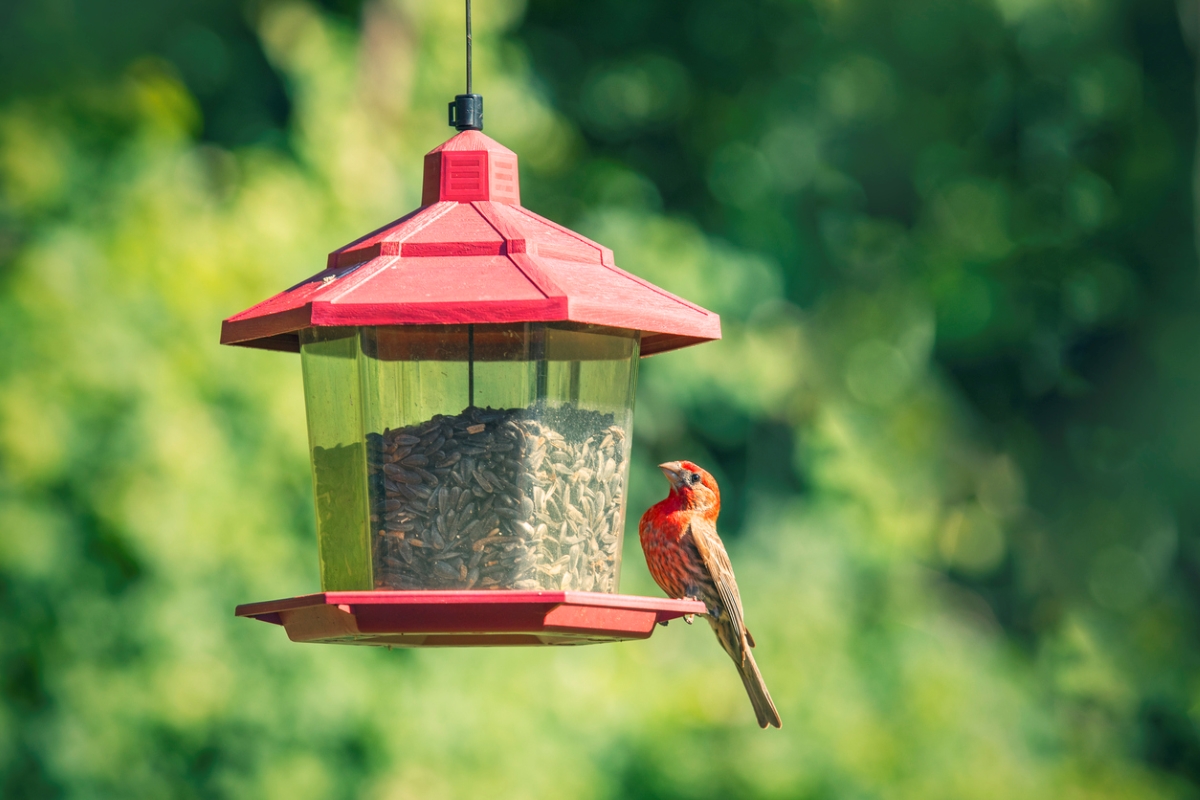
Inviting the animals that naturally feed on mosquitoes to the yard is another way to keep these irritating insects away. Several types of birds enjoy snacking on mosquitoes, including purple martins, waterfowl, eastern phoebes, swallows, and migratory songbirds. Simply set up a few bird feeders in the yard to attract these feathered friends. Those who have a pond in their backyard can add water-based predators that eliminate mosquitoes like goldfish, koi, turtles, frogs, and toads. Finally, dragonflies rank among the best mosquito control insects, often referred to as “mosquito hawks” for their ability to kill many mosquitoes.
RELATED: Plants That Repel Mosquitoes: 18 Picks for a Bug-Free Backyard
15. Spray yourself with apple cider vinegar.
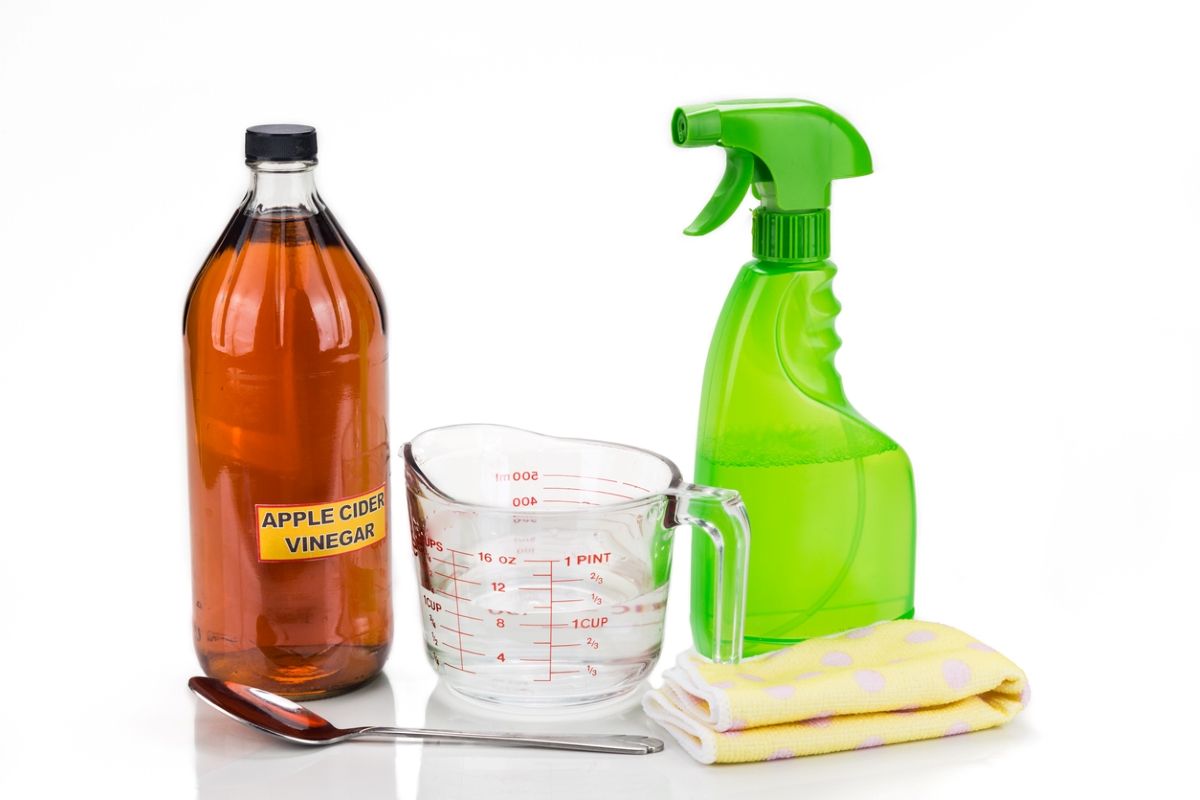
Apple cider vinegar is known for its many benefits—and you can add “mosquito deterrent” to the list. Scare mosquitoes away by mixing a concoction of the vinegar plus an essential oil, and either spray it in areas where mosquitoes hang out or on your body to mask body odor. Among the home remedies for mosquitoes, this homemade repellent requires starting with only ¼ cup of apple cider vinegar with an equal amount of water in a spray bottle. Next, add 40 drops of an essential oil known to be most effective against mosquitoes, such as lavender, peppermint, rosemary, or tea tree oil.
